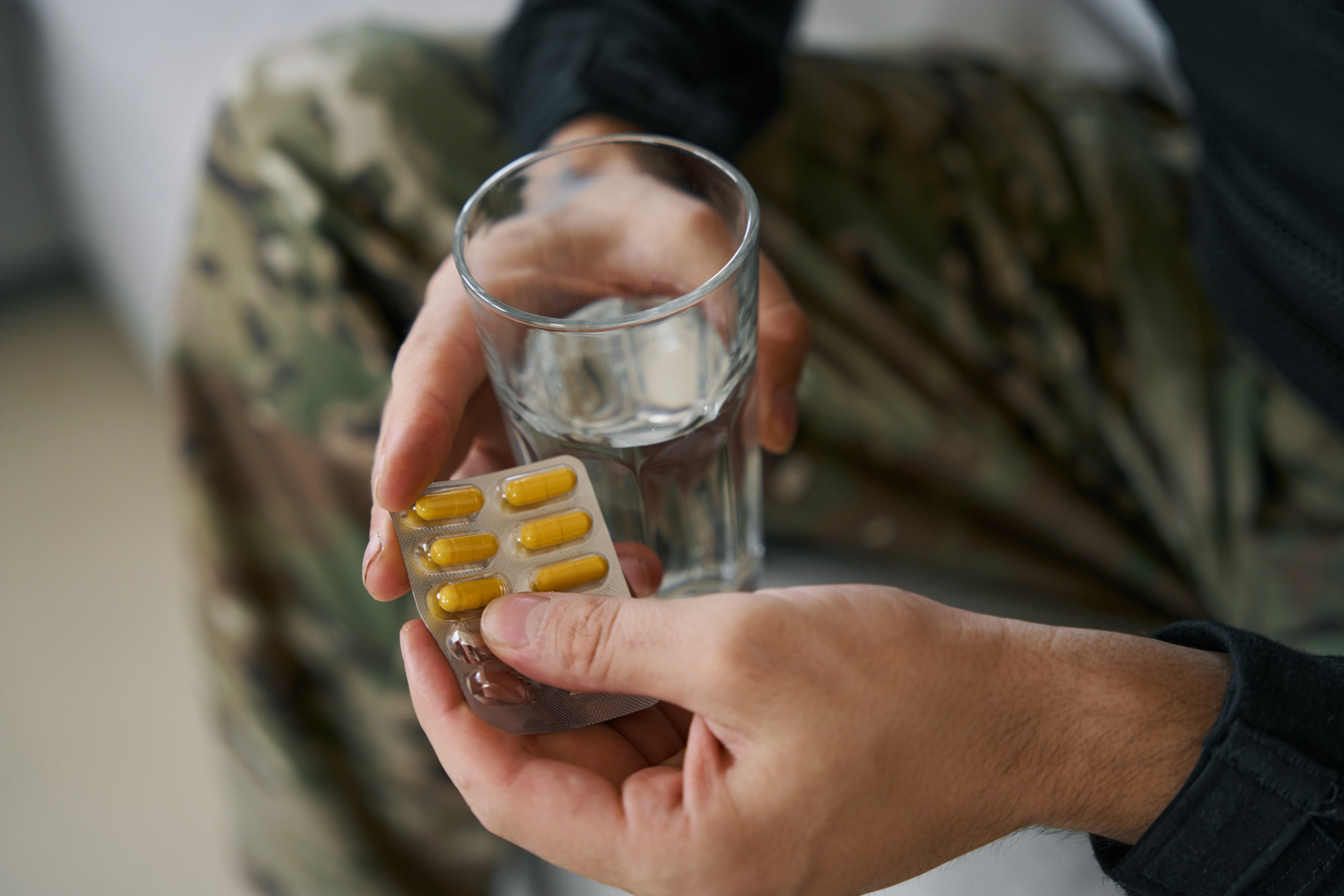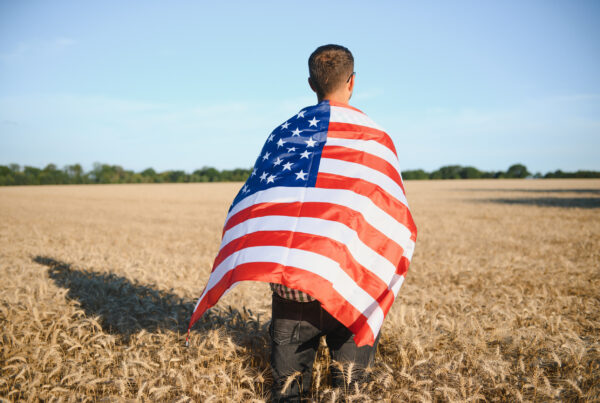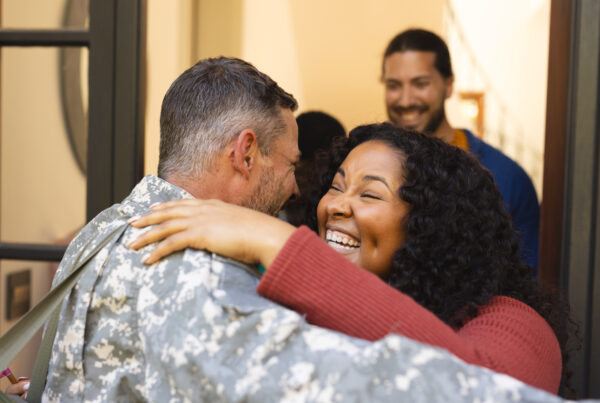”Question: How can military, Veterans, and first responders get help for substance abuse during International Overdose Awareness Month?
Reading time: 6 Minutes
MWi Hack:
- International Overdose Awareness Month calls on military, Veteran, and first responder communities—along with their families and friends—to break the silence around substance abuse by recognizing that seeking help is an act of courage, utilizing specialized resources like the Veterans Crisis Line and peer support programs, and creating cultures where recovery is supported rather than stigmatized.
MWi Summary:
- Alarming Statistics: In 2024, over 80,000 Americans died from drug overdoses (down from 110,037 in 2023), while Veterans face suicide rates 1.6 times higher than civilians with approximately 6,000 Veteran suicides annually, and first responders experience substance use disorders at 2-3 times the general population rate.
- Recognize the Signs: Warning signs include increased isolation, declining job performance, mood swings, neglecting responsibilities, and using substances to cope with trauma, stress, or chronic pain common in military and first responder roles, with 20% of first responders with PTSD also having substance use disorders.
- Access Specialized Resources: Military members can use Military Family Life Counselors and Substance Abuse Programs, Veterans can call the Veterans Crisis Line (988, Press 1), and first responders have access to department trauma counselors and the National Volunteer Fire Council’s Help Line (1-888-731-3473).
- Leverage Extended Support Networks: Family members, friends, and peer support programs serve as crucial lifelines, with training programs like Mental Health First Aid helping loved ones recognize problems and connect individuals to appropriate care, while organizations like Team Red White & Blue and Badge of Life provide Veteran and first responder-specific peer support.
- Create Lasting Change: Success requires building cultures where seeking help is seen as strength, having difficult conversations, advocating for better workplace mental health resources, and transforming awareness into action through community support—with the encouraging news that overdose deaths decreased 27% from 2023 to 2024, proving collective action works.
Every August 31st, the world observes International Overdose Awareness Day, marking the culmination of a month dedicated to remembering those lost to overdose and mobilizing communities to prevent future tragedies. The statistics paint a sobering picture: in 2024, over 80,000 Americans died from drug overdoses, a decrease from 110,037 deaths in 2023. While Veteran men actually have lower overdose rates than civilian men, the broader mental health crisis remains severe—Veterans face suicide rates 1.6 times higher than civilians, with approximately 6,000 Veteran suicides occurring annually. Among active-duty service members, prescription drug misuse affects approximately 11% of personnel, while first responders experience substance use disorders at rates 2-3 times higher than the general population, with 30% reporting problematic alcohol use compared to 10-15% among civilians. These numbers represent not just statistics, but beloved family members, trusted colleagues, and heroes who served our communities and nation.
Breaking the Silence: Recognizing the Signs
For military personnel, Veterans, and first responders, acknowledging substance abuse can feel like admitting weakness in professions that demand strength and resilience. However, recognizing the warning signs is the first step toward healing. These may include increased isolation, declining job performance, unexplained mood swings, neglecting responsibilities, or using substances to cope with stress, trauma, or physical pain.
The unique stressors faced by these communities – from combat exposure and repeated trauma exposure to chronic pain and irregular schedules – create perfect storms for substance misuse. Understanding that seeking help demonstrates courage, not weakness, is crucial for breaking down barriers to treatment. Research shows that 20% of first responders with PTSD also have substance use disorders, while approximately 40% of Veterans with substance use disorders also struggle with mental health issues.
Reaching Out: Where to Find Help
When concern arises about substance abuse, multiple pathways to assistance exist. For active-duty military members, the Military Family Life Counselors (MFLC) program provides confidential, non-medical counseling services. The Substance Abuse Program (SAP) offers comprehensive assessment and treatment services, while the Employee Assistance Program (EAP) provides 24/7 confidential support.
Veterans have access to specialized resources through the Department of Veterans Affairs, including the Veterans Crisis Line (988, Press 1), which offers immediate support and connects callers to local VA resources. The VA’s Substance Use Disorder treatment programs are specifically designed to address the unique needs of Veterans, incorporating trauma-informed care and peer support services. Studies show that Veterans who use VHA services have better outcomes, though they may initially show higher crisis rates as they engage with care.
First responders can access the First Responder Trauma Counselors through many departments, while the National Volunteer Fire Council’s Help Line (1-888-731-3473) provides confidential support. Many police and fire departments now offer peer support programs, recognizing that help from someone who understands the job can be particularly effective. The International Association of Chiefs of Police and National Fallen Firefighters Foundation also provide specialized resources.
The Extended Network: Family and Friends as Lifelines
The support network extends far beyond formal services. Family members and friends often serve as the first line of defense, noticing changes before they become crises. Spouses, children, parents, and close friends play crucial roles in encouraging treatment and providing ongoing support throughout recovery.
Training programs like Mental Health First Aid teach family members how to recognize signs of mental health and substance use problems, provide initial support, and connect loved ones to appropriate care. Support groups such as Al-Anon and Nar-Anon offer guidance for families affected by addiction, while military-specific resources like Operation Homefront provide comprehensive family support services. For first responder families, organizations like First Responder Families United offer peer support specifically designed for those who understand the unique challenges of loving someone in these high-stress professions.
Building Bridges: Peer Support and Community Connection
Peer support programs have proven particularly effective within military and first responder communities. Programs like Team Red White & Blue connect Veterans through physical and social activities, while the International Association of Fire Chiefs’ Safety, Health and Survival Section promotes firefighter behavioral health initiatives. The Badge of Life program specifically addresses police officer suicide prevention through peer support.
These peer networks understand the unique challenges faced by service members and first responders. They provide safe spaces where individuals can share experiences without judgment, learn coping strategies from others who have faced similar struggles, and find accountability partners in recovery. Research demonstrates that first responders who participate in peer support programs show significantly improved mental health outcomes and reduced substance use.
Creating a Culture of Support
Successful overdose prevention requires cultural shifts within organizations and communities. Leadership at all levels must model help-seeking behavior, reduce stigma around mental health and substance use treatment, and ensure that seeking help doesn’t negatively impact careers or security clearances when appropriate treatment is pursued.
Training programs that educate supervisors and colleagues about recognizing signs of distress and making appropriate referrals create environments where help-seeking is normalized and supported. Regular mental health check-ins, stress management training, and resilience-building programs help prevent problems before they escalate. Organizations like the First Responder Trauma Institute provide evidence-based training to help departments implement comprehensive wellness programs.
Making This Month Count: Our Collective Commitment
International Overdose Awareness Month succeeds when we transform awareness into action. This means having difficult conversations with loved ones, advocating for better mental health resources in our workplaces, supporting evidence-based treatment programs, and remembering that recovery is possible with the right support.
We honor those we’ve lost by ensuring others don’t suffer in silence. By building communities where seeking help is seen as strength, where peer support thrives, and where comprehensive treatment is accessible, we create lasting change. The encouraging news is that overdose deaths decreased by 27% from 2023 to 2024, proving that collective action works. Together, we can ensure that this month of awareness becomes a catalyst for hope, healing, and the preservation of precious lives devoted to serving others.
Through our responsive content and dedicated support, MWi continues to serve the modern military and Veteran community by providing relevant, practical strategies for enhancing connection and wellness.






